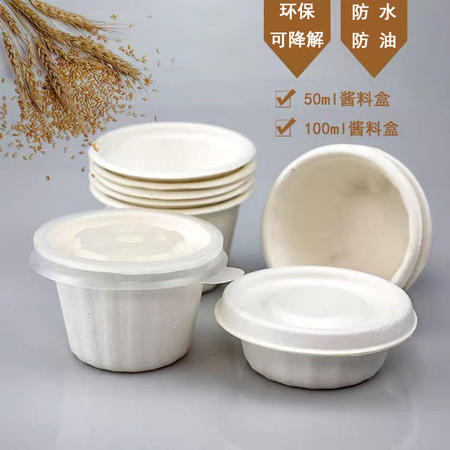Pulp molding tableware is an eco-friendly alternative to traditional disposable tableware, such as those made from plastic or Styrofoam. It is created from molded pulp, which is a material typically made from recycled paperboard and/or natural fiber materials, including sugarcane bagasse, bamboo, wheat straw, or other sustainable sources.

The process of making pulp molded tableware involves several steps. First, the raw materials are collected and processed into a pulp mixture. This is done by adding water to the fibers and then mechanically or chemically breaking them down into a slurry. The slurry is then cleaned and screened to remove any contaminants and to ensure the fibers are of uniform size.
Once the pulp is prepared, it is transferred to a pulp molding tableware machine where it is shaped into the desired forms. This is achieved by using molds that define the shape and size of the tableware items, such as plates, bowls, cups, or trays. The pulp mixture is spread over the molds and then pressed and heated to remove excess water, which allows the fibers to bond and the items to hold their shape.
After molding, the tableware is often subjected to further drying to reduce moisture content and increase strength and rigidity. The drying process can be done using natural drying methods or through the use of industrial dryers.
The final step is to finish the products by trimming any excess material and, if necessary, applying a coating that can make them water or grease resistant. This coating is important for certain types of food that may be hot, oily, or moist, but it should also be biodegradable or compostable to maintain the environmental benefits of the tableware.
Pulp molded tableware has several advantages over its non-biodegradable counterparts:
1. Sustainability: Since it's made from natural and often recycled materials, pulp molding tableware has a smaller environmental footprint. The raw materials are renewable, and the end products can be composted, leading to reduced waste in landfills.
2. Biodegradability: Unlike plastic, which can take hundreds of years to decompose, pulp molded products can break down naturally, often within a few months when composted.
3. Safety and Health: Pulp molded tableware doesn't leach harmful chemicals into food and is generally considered safe for consumers.
4. Versatility: The molding process allows for a wide range of designs, shapes, and sizes. This versatility makes it suitable for various occasions, from casual picnics to more formal events.
5. Energy Efficiency: The production of pulp molded tableware typically requires less energy compared to the manufacturing of plastic or Styrofoam products.
While pulp molded tableware is a promising solution to reduce single-use plastic waste, it is not without its challenges. The cost of production can be higher than traditional options, and the durability may not always match that of plastic. However, as technology advances and demand for sustainable products grows, pulp molding tableware is becoming increasingly popular and economically viable, offering a promising outlook for a greener future in disposable tableware.
 English
English
 Español
Español
 Português
Português
 русский
русский
 français
français
 日本語
日本語
 Deutsch
Deutsch
 Tiếng Việt
Tiếng Việt
 Italiano
Italiano
 Nederlands
Nederlands
 ไทย
ไทย
 Polski
Polski
 한국어
한국어
 Svenska
Svenska
 magyar
magyar
 Malay
Malay
 Dansk
Dansk
 Suomi
Suomi
 عربى
عربى
 norsk
norsk
 اردو
اردو
 čeština
čeština
 Ελληνικά
Ελληνικά
 Javanese
Javanese
 български
български
 ລາວ
ລາວ
 Latine
Latine
 Euskal
Euskal
 Azərbaycan
Azərbaycan
 slovenský
slovenský
 Македонски
Македонски
 Eesti Keel
Eesti Keel
 Српски
Српски
 Afrikaans
Afrikaans
 עִברִית
עִברִית
 icelandic
icelandic
 Беларус
Беларус
 Malti
Malti
 lugha ya Kiswahili
lugha ya Kiswahili
 አማርኛ
አማርኛ
 Frysk
Frysk
 ជនជាតិខ្មែរ
ជនជាតិខ្មែរ
 ಕನ್ನಡ
ಕನ್ನಡ
 Corsa
Corsa
 Kurdî
Kurdî
 മലയാളം
മലയാളം
 Hmong
Hmong
 Cebuano
Cebuano
 Hawaiian
Hawaiian
 Shinra
Shinra

